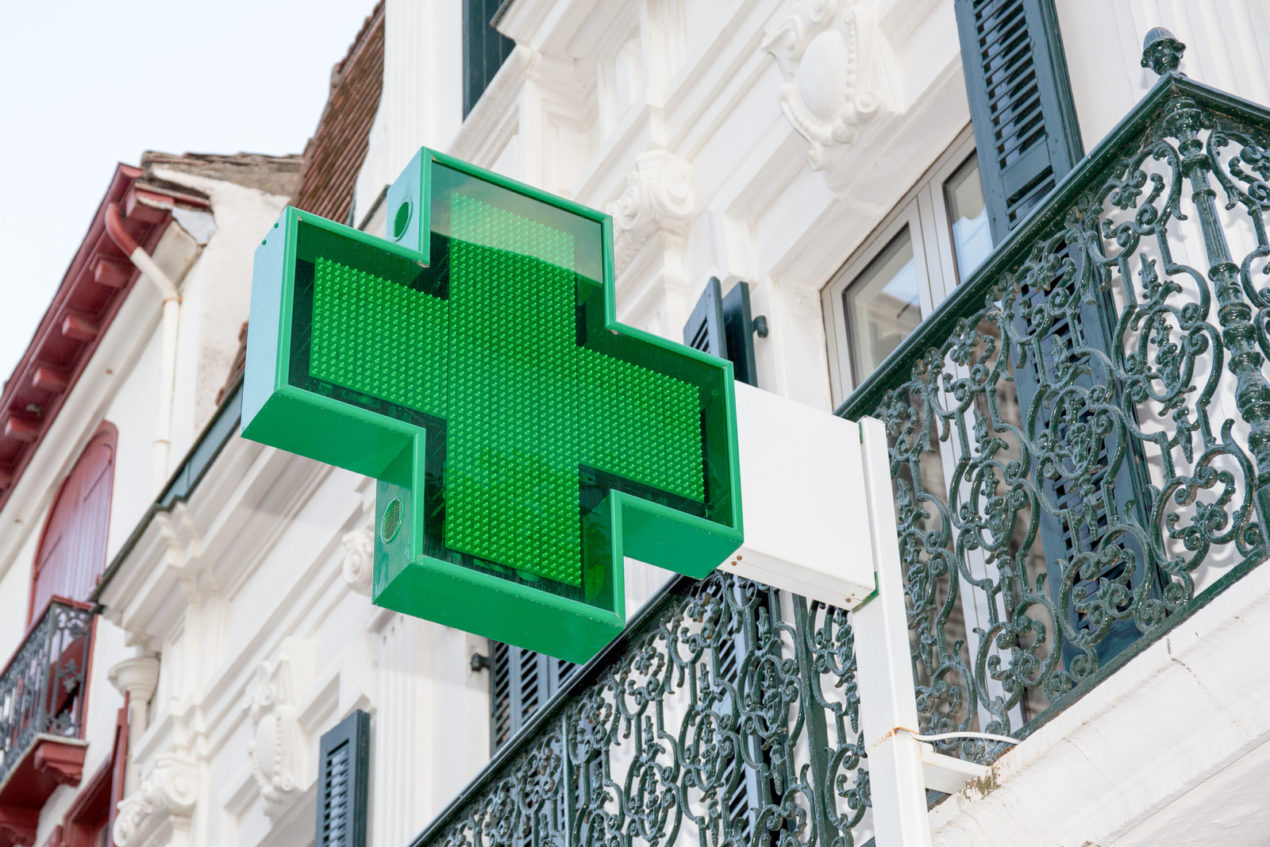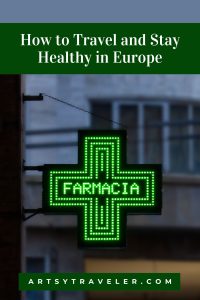How to Travel and Stay Healthy in Europe
Staying healthy while traveling in Europe requires more vigilance than you exercise at home. You’ll come into contact with thousands of people, often in close quarters, and be exposed to millions of germs.
And if you work from home like I do, you’re at even greater risk of getting sick while traveling. Your system is likely not exposed to the variety of germs you’ll encounter when you travel to Europe.
This post presents some common sense guidelines for how to stay healthy while traveling in Europe–and what to do if you need a doctor. Spoiler alert: Seeing a doctor in Europe is surprisingly easy, at least in my experience.
Good Hygiene for Staying Healthy in Europe
Be Vigilant About Hand-Washing
I know—what else is new? But when you’re traveling, hand-washing is even more important than it is when you’re at home. Not touching your face and keeping your hands clean can help prevent the spread of germs and infectious diseases. The current guideline is to wash your hands for 20 seconds with soap and water.
Wet your hands, leave the water running, soap up and then wash your hands while singing Happy Birthday twice. Rinse your hands, then dry them with a paper towel. Use the paper towel to turn off the water and to open the bathroom door.

In a public washroom, you may want to sing under your breath. Or take a stab at singing it in the local language and maybe make some new friends or at least attract some smiles.
Finding Washrooms in Europe
As soon as you get to a restaurant and before you reach for the bread sticks, find the washroom and wash your hands. Take time to learn how to ask, “Where is the toilet?” in the language of the country you’re traveling in.
Or just raise your eyebrow at the server, smile ruefully and cock your head politely toward the back of the restaurant. The server will know what you want and steer you in the right direction.
That said, avoid public washrooms as much as possible, particularly the coin-operated, telephone-booth type WC on street corners. In a pinch, you may have no choice, but if you can, wait until you get back to your hotel room.
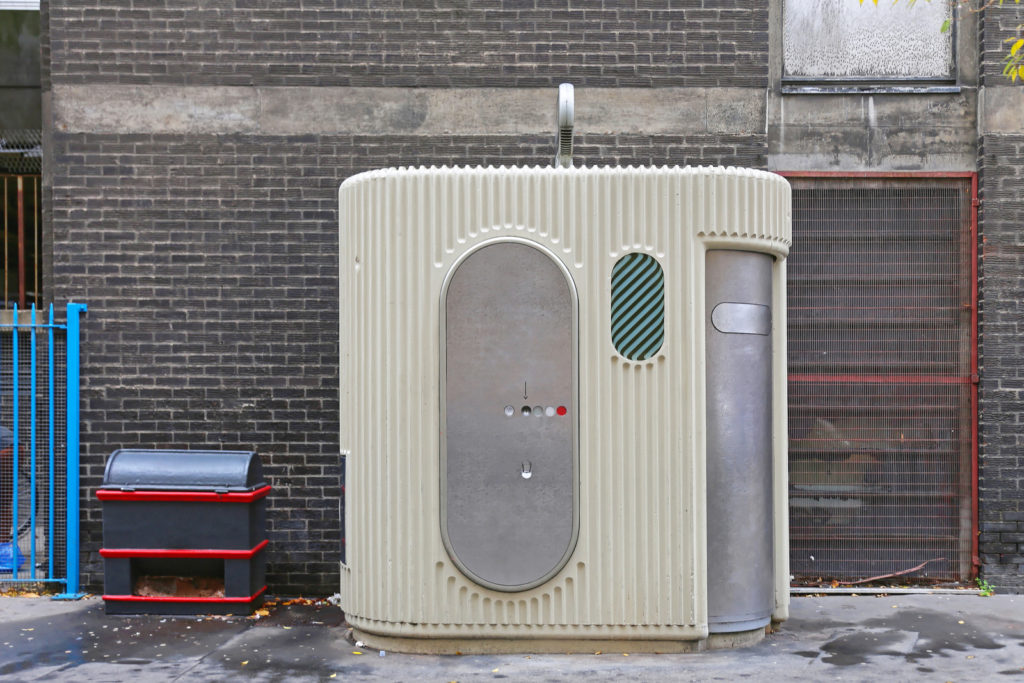
For an entertaining and detailed look at toilets in Europe, check out this article by Rick Steves.
Take Alcohol Wipes or Hand Sanitizer
Stash several packets of alcohol wipes in your day pack or handbag. When you get to Europe, look for the European versions in pharmacies and large supermarkets.
Purchasing these kinds of products in Europe is always interesting because you often end up with products that are different from what you’re used to and are work just as well or better.
Keep Safe on the Plane
I’ve taken to wiping down my tray table on the plane in recent years. I never used to, which is probably why I usually caught a cold within the first few days of arriving in Europe.
I also recently read that the seat pocket in front of you is NEVER cleaned which means it’s probably a ninth-grade science experiment. You don’t want to think about it.
Resist the temptation to stash your book or laptop in the seat pocket. Keep a small bag with you at your seat for storing the stuff you need during the flight.
You should also wipe down the seat belt and buckle, the remote control, the TV screen, and the headrest.
Accommodation Tips for Staying Healthy in Europe
Inspect Hotel Rooms Carefully
Unfortunately, hotel rooms can be notoriously filthy even if they look clean. Although I don’t think it helps to get too paranoid in our post-COVID world, check for obvious signs of dirt such as poorly cleaned bathroom fixtures, stained carpets, and musty bedding. If the place is really awful, leave.
A pervading smell of bug spray is another clue that you might want to find a different place.
Also, even in “good” hotels, bedspreads and decorative pillows are rarely washed. Be sure to remove the bedspread before sitting on the bed and don’t cuddle up to the pillows.
Another germ-laced object in hotel rooms is the TV universal remote control. Before using it, give it a good swab with an alcohol wipe.
Medications and First Aid to Keep You Healthy in Europe
Take Extra Medications
If you take prescription medications, bring along more than you think you’ll need for the duration of your trip. If you’re quarantined or otherwise delayed, you want to be sure to have enough medication.
Consider taking enough to last for at least four to six weeks beyond the duration of your trip.
Take a First Aid Kit
In addition to the usual first aid kit supplies (Band-Aids, tweezers, aspirins, etc.), take along a small bottle of Oil of Oregano or the cold remedy of your choice. At the first sign of a scratchy throat, take a dose or two.
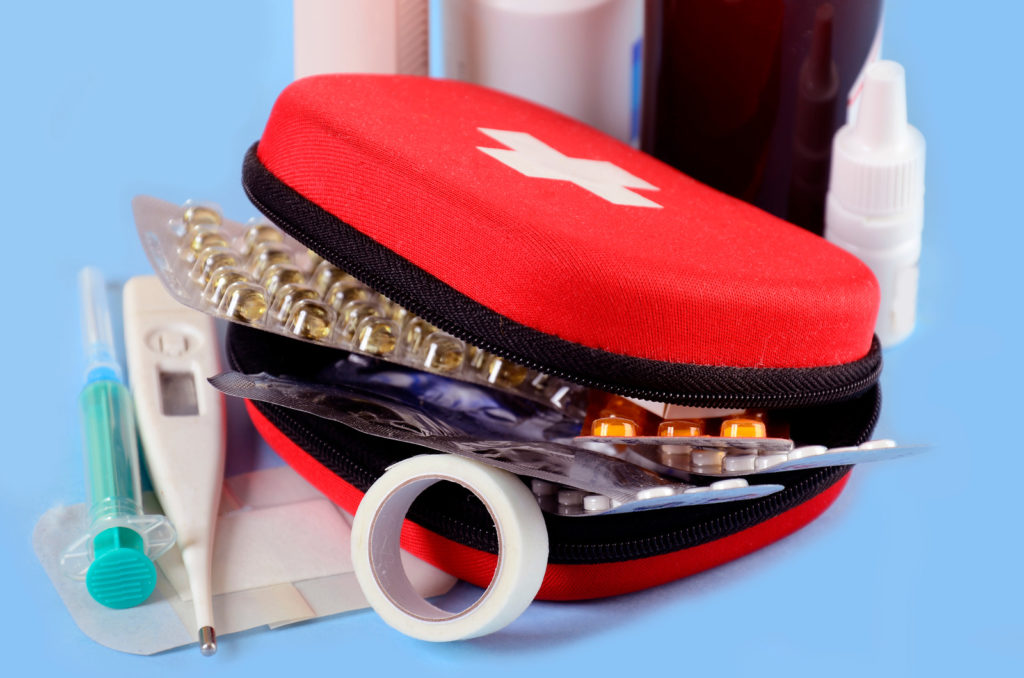
And then get thee to a European pharmacy pronto.
Staying Healthy Using European Pharmacies
Look for the illuminated green cross. In many European cities, you’ll find a pharmacy on every other block.
One of the great joys of traveling in Europe is discovering the quality of the pharmacies. Most are staffed with English-speaking health care professionals.
Buy Suggested Remedies at Pharmacies
Explain what’s wrong to the pharmacist. He or she will probably ask several detailed questions about your symptoms and health history. The remedies they recommend can be pricey, but in my experience they work well. Don’t stint!
Getting Medical Attention on the Road
Connect with a Local Doctor
Thanks to the Internet, it’s increasingly easy to find a doctor while traveling in Europe. I’ve consulted with doctors in Spain, Italy, and France, and all have been English-speaking and very helpful. Ask for a list of doctors at the local pharmacy or search online for “English-speaking doctors in [city]”.
In Madrid, I searched for “English-speaking doctors for travelers” and came up with several websites that catered to tourists in need of medical attention. I called one of them and literally within an hour, a doctor arrived at my hotel room. She examined me, gave me a shot, prescribed medications, and then whipped out her Visa machine. The cost was 150 Euros. I could have claimed it on my medical insurance, but with a deductible of $500, it wasn’t worth it. The doctor told me that a lot of her calls are to tend to tourists who are hungover after too much Madrid partying!
I paid for each visit I made to a doctor in Europe, but the cost was extremely reasonable (the 150 Euros in Madrid was the most expensive) and the care first rate. When you’re in need of a doctor in Europe, don’t wait! Go online, find a doctor or a service that caters to tourists and either call or book online.
Go to the Hospital if Needed
In a medical emergency, go directly to the hospital. I’ve heard from many travelers that the level of care is excellent. If whatever ails you can’t be fixed by a trip to the pharmacy or a visit to a local doctor, go to a hospital and ask for help.
Staying Healthy on the Road
Avoid Large Crowds at Attractions
When possible, avoid visiting attractions at peak times when crowds are at their thickest. Your best bet is to go first thing in the morning.
When you get to the Louvre as soon as it opens, you’ll not only avoid crowds and germs, you’ll also have the place to yourself. Imagine being the day’s first person who gets to see the Mona Lisa!
If you have a cold or are immune compromised, wearing a mask when out in crowds makes good sense.
Rent a Car
I know — it’s not the green thing to do, but driving in your own car could help keep you healthy. If you do travel by train, get out those alcohol wipes and ramp up your hand-washing routine.
Travel Healthy: Walk More & Use Transit Less
Being jammed next to someone who is coughing and sneezing when you have no room to get away is a recipe for disaster. Be conscious of crowds on public transit and whenever possible, walk or wait for the next bus or train that may be less crowded.
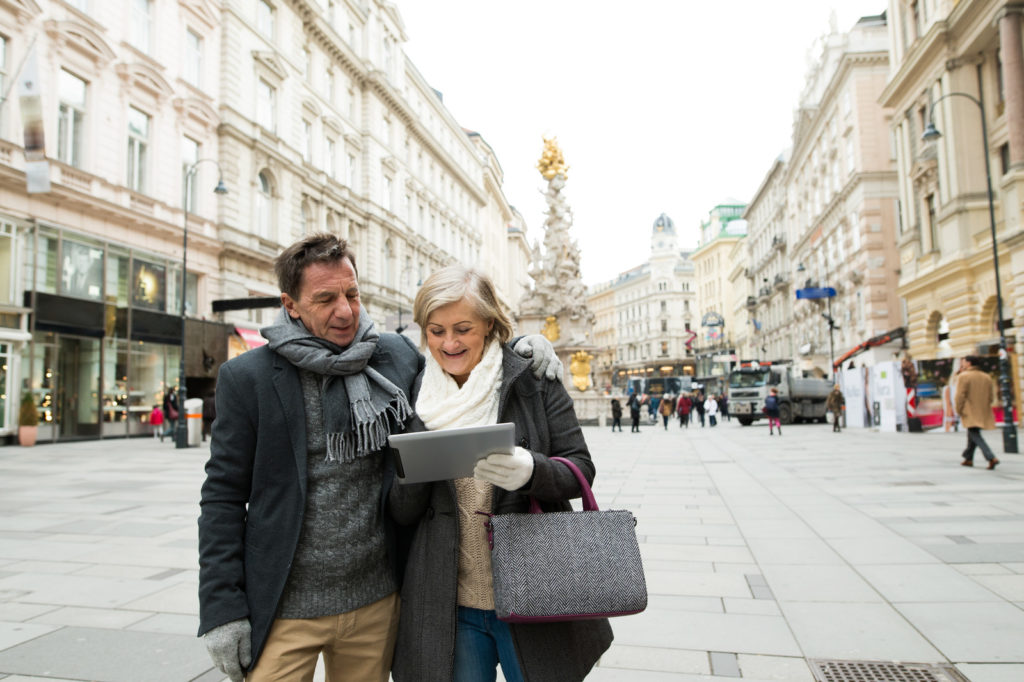
You can mitigate some of the risk by avoiding traveling by public transit during rush hour times.
Take Lots of Reading Material
What if you get delayed because of a health scare or, heaven forbid, you get sick yourself? Take along an e-Reader loaded with several novels. For inspiration, check out some of the novels listed in these posts on Artsy Traveler:
- Top Ten Artsy Novels to Read in Europe
- Compelling Novels Set in Italy Perfect for the Artsy Traveler
- Compelling Novels Set in France Perfect for the Artsy Traveler
- Compelling Novels Set in Austria Perfect for the Artsy Traveler
If you’re not able to enjoy your destination in person, you can at least read about it.
Conclusion
Staying healthy while traveling in Europe is possible. Just like at home, you can avoid germs by taking sensible precautions. The good news is that health care in Europe is first rate.
Buy good travel insurance that includes health coverage and then relax. If you do get sick, you will be well taken care of.
